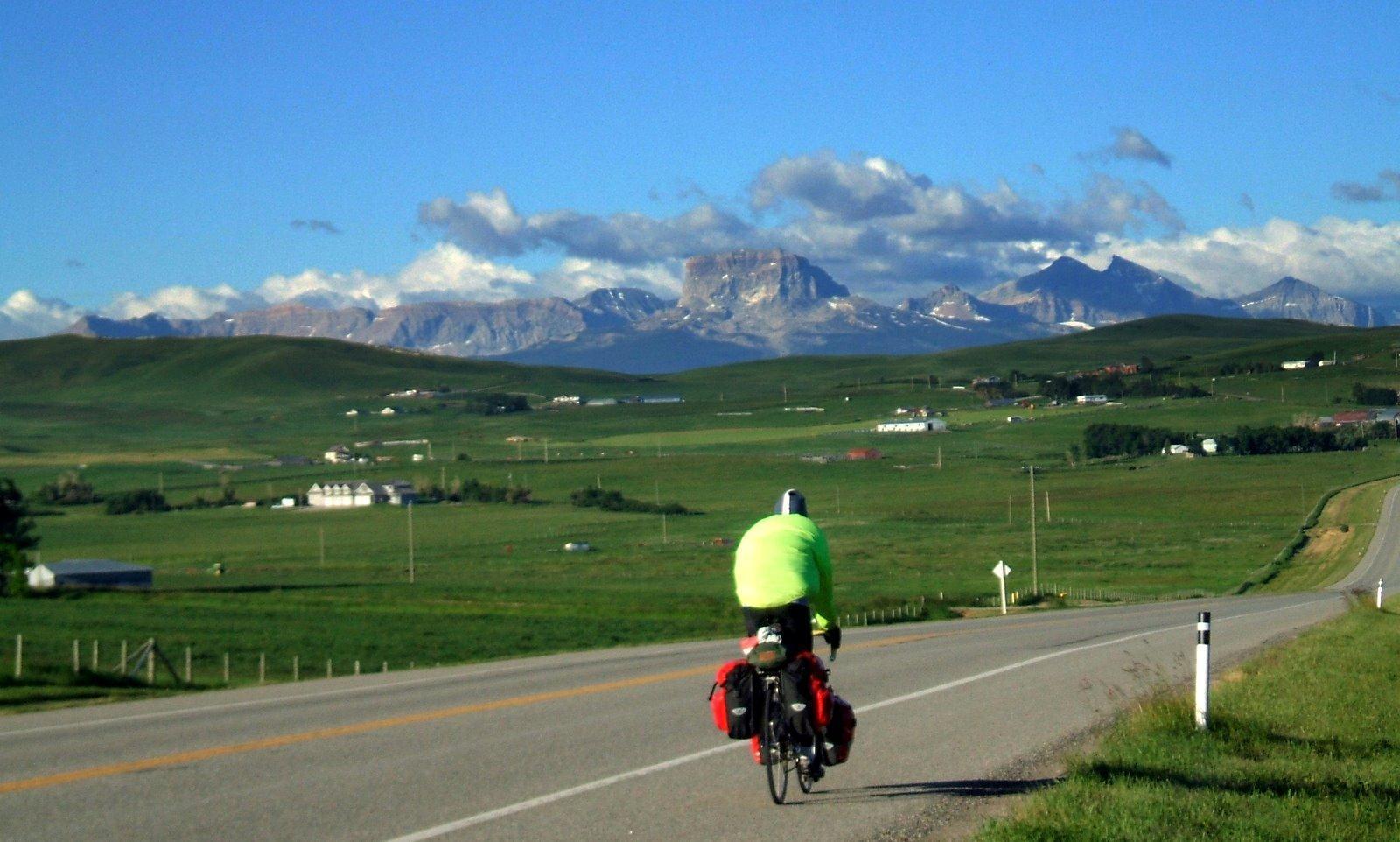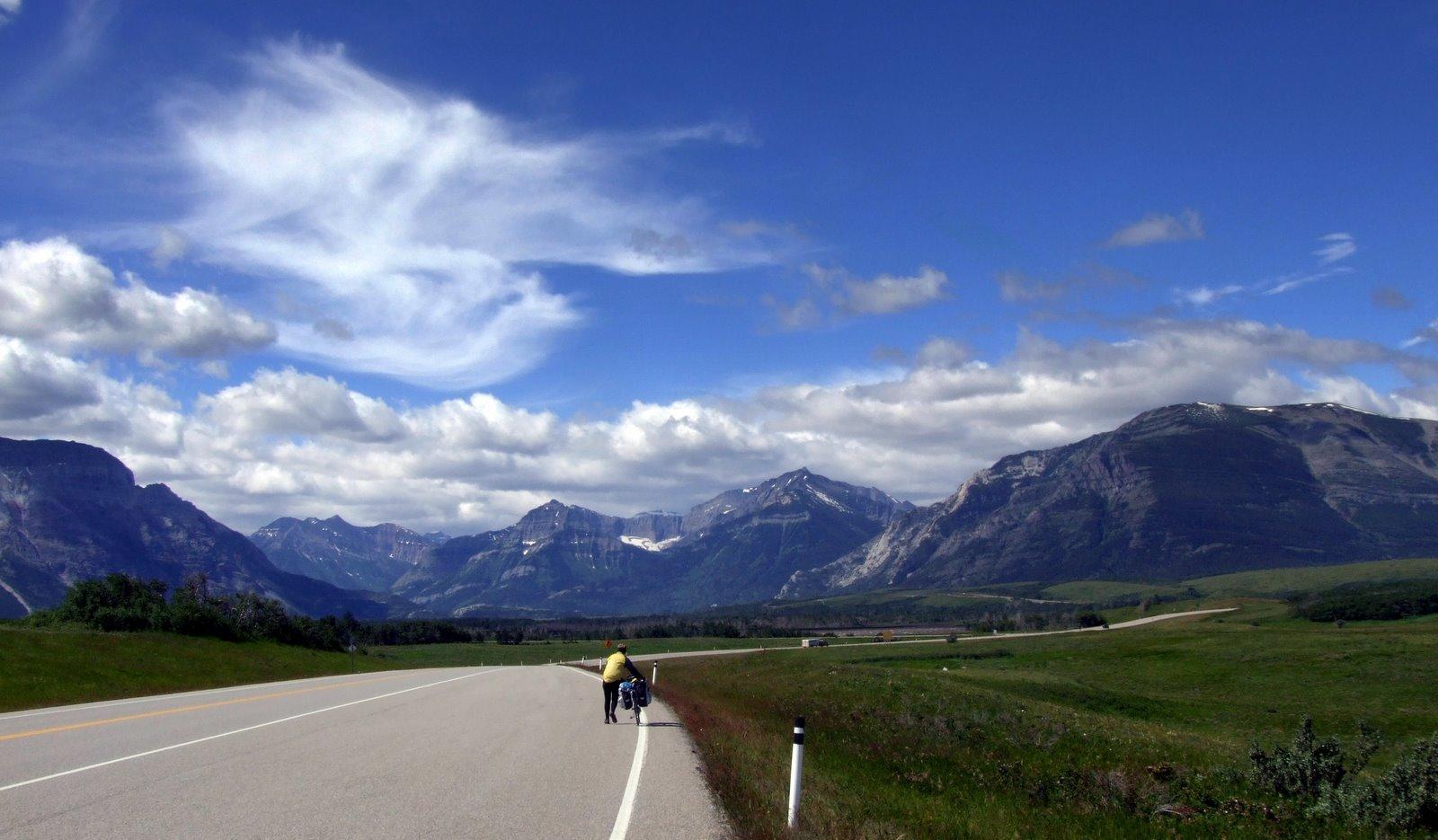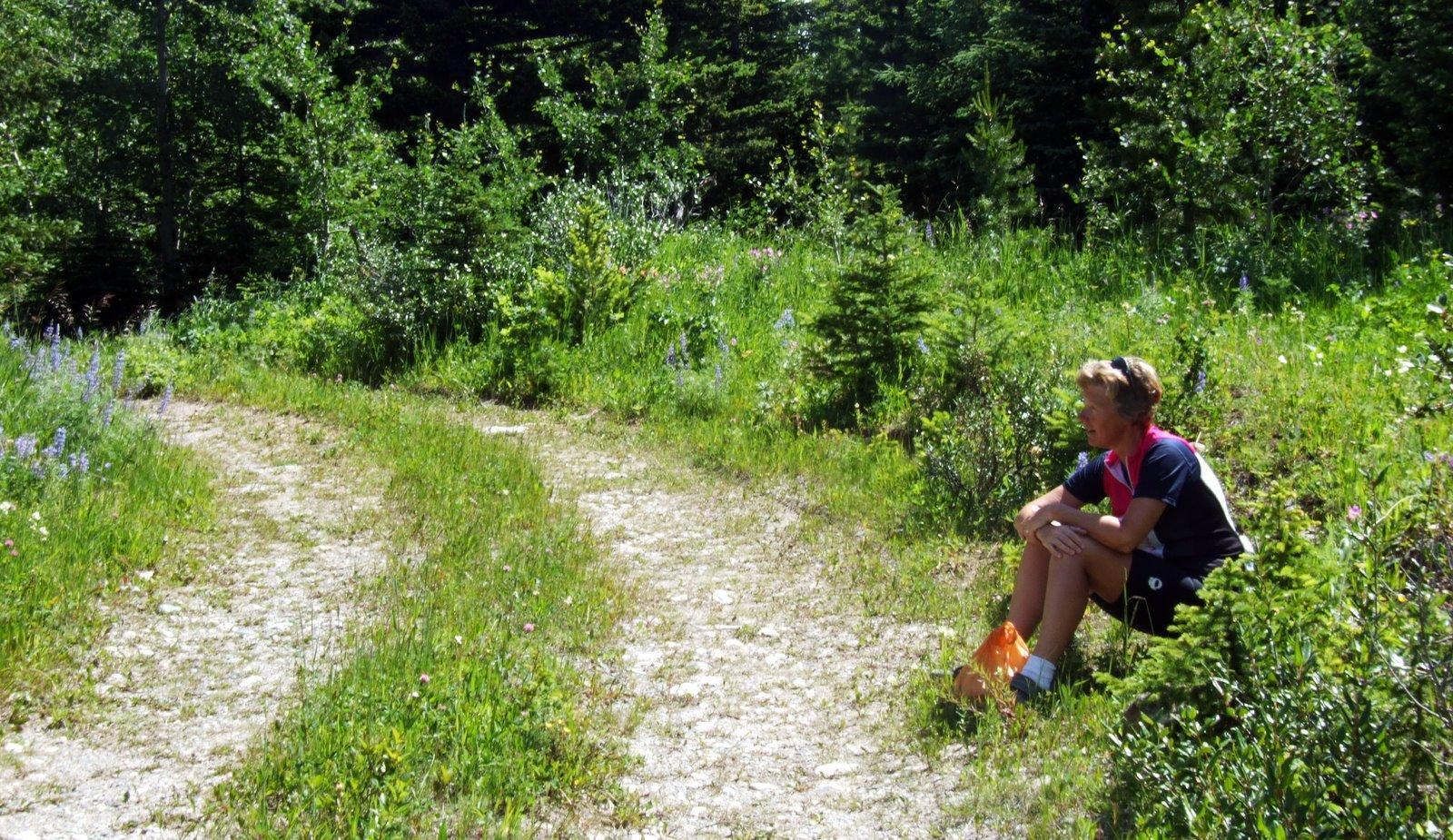July 13: Cardston to Belly River (Waterton National Park)
MEN HAVE WON MEDALS for less than we did today. The wind, as you know, blew wildly yesterday, plucking branches off trees and sending people stooped along the sidewalks. The sane stayed at home. We set off, gave up and turned round. In early evening it blew so hard that the owners of the campsite urged us to stay at their house.
Cindy, the wife, tried first. She's a bespectacled woman with a quiet sense of humour. "We're seriously worried about you guys," she said, after I'd turned the tent through 45 degrees to reposition it into the changing gale. Then her husband, quieter and more serious, had a go.
"It's going to rain all night and it's going to blow at 50 klicks (kilometres) an hour tomorrow. It's a serious offer. We have four bedrooms and none of them's being used," he all but implored.
Cindy had spoken of "hail the size of golf balls" interrupting the Calgary Stampede not so far away. Hail, when reported in awe, is always "the size of golf balls." But nobody had mentioned the same for Cardston and so we stayed put. Wind and rain are no problem; hail can shred a tent in moments.
As it turned out, the rain stopped half an hour later and the wind dropped. But only until dawn. And then the wind rose again, sending the trees into a frenzy and brushing long grass into near-horizontal submission. It was pretty to watch, daunting to contemplate.
But how long can you sit out bad weather?
Perhaps not long enough. I have a 24-tooth inner chainring and I used it for much of the day. The wind rose and rose. It was enough just to keep going against it. To fight it would have been disastrous.
When it was dead ahead, we merely made slow progress, often little faster than walking. When the road turned, we leaned against the blast like dying trees. The wind blew me off the road three times in five minutes, happily on to gravel to the right. When it pushed from the other side, the struggle was a physical and nervous battle to avoid being pushed off the shoulder and into - unexpectedly so far as less observant drivers were concerned - the traffic coming from behind.
Steph said: "I kept finding my front wheel pushed about. You can't stay as far to one side as you want because of the risk of overcompensating and
running off the road. It was mentally exhausting, just keeping the bike straight, not daring to take a hand off the bars to drink or blow your nose."
The one compensation was the approach of the Rockies. Yesterday they were just a smudge on the horizon. It is astonishing how quickly they have become reality, ahead of us and beside us. They live up to their name, austere and treeless here, with little snow and just occasional streaks of white where the sun has been kept out of some crevice or stream bed. The mountains are sudden, bald and brown.
Salvation came, in a way, when we turned left on to a lesser road into Waterton Lake national park. Now the wind was less against us but far less predictable. The mountain edges sent it swirling in all senses, like a drunken man bouncing

| Heart | 2 | Comment | 0 | Link |
off the walls of a bar, and the conifers which rose beside the road would hold back the wind and then let it through in angry rushes. The road rose to 1,700 metres, a long, slow and alarmingly and unwillingly zigzag rise until after who knows how long it swung left and the gale below without inhibition straight at our backs.

| Heart | 1 | Comment | 0 | Link |
It blew us the few dozen metres to the summit and then down helter-skelter into the flat, glacial valley. We rushed through the little Blood Tribe Indian reservation, a small and so far as we could see uninhabited annex to the larger reservation that neighbours Cardston, then on towards Chief Mountain, the flat-topped giant which Indians have revered for centuries.
The valley was green, flat, with trees on both sides. The mountains were all around us, gazing down contemptuously at those who defied nature. There were small, dark lakes with dancing white sheep where the wind whipped them. We thought of pushing on for the American border and perhaps down into Babb, but black clouds now shrugged their shoulders above the peaks. To be stuck back at height with a storm raging and nowhere to pitch a tent was less than attractive.
We pulled into a primitive state camp site beside the Belly river. There was no running water to drink and there were no showers. But there was a storm cabin and there we spent the night, indoors, secure against the bears which regularly roam the site, and sleeping on tables.
| Rate this entry's writing | Heart | 3 |
| Comment on this entry | Comment | 0 |


